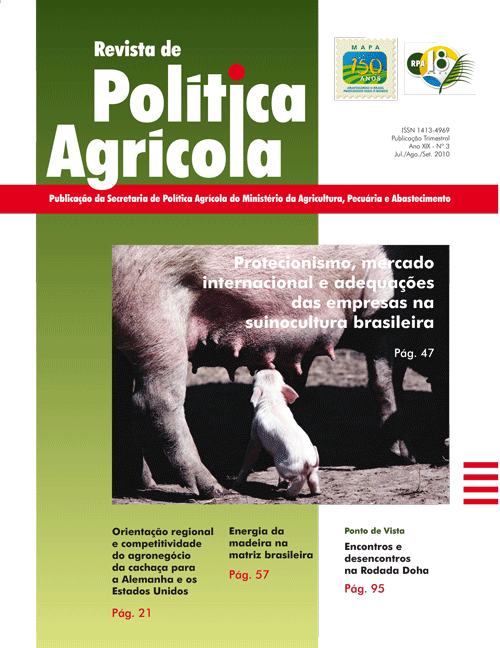Protectionism, international trade, and improvements in Brazil’s swine culture industry
Keywords:
agribusiness, exports, protectionism, swine productionAbstract
Foreign trade from Brazil, in its many areas, and especially agriculture, is constantly facing trade barriers imposed by other countries, either duty barriers or technical ones, often unjustified. The challenges for swine meat export are constant, mainly with export destinations such as the European Union and Asian markets, each one posing its own idiosyncrasies with regards to import restrictions. Protectionist barriers most mentioned by exporter companies include items related to animal wellbeing, sanitary questions, residues, and food safety. With Brazil’s yearly per capita use of swine meat below 14 kg, the international market plays an important role for the Brazilian swine meat production, which finds Russia as its largest export destination, thus making the business extremely dependent of that country’s purchasing. The diversification of export destinations is therefore crucial for the business to avoid being a target of Russia’s demand crises.Downloads
How to Cite
Araújo Junior, A. M. de, Talamini, D. J. D., & Fernandes, H. (2015). Protectionism, international trade, and improvements in Brazil’s swine culture industry. Revista De Política Agrícola, 19(3), 47–56. Retrieved from https://rpa.sede.embrapa.br/RPA/article/view/347
Issue
Section
Artigos Científicos

